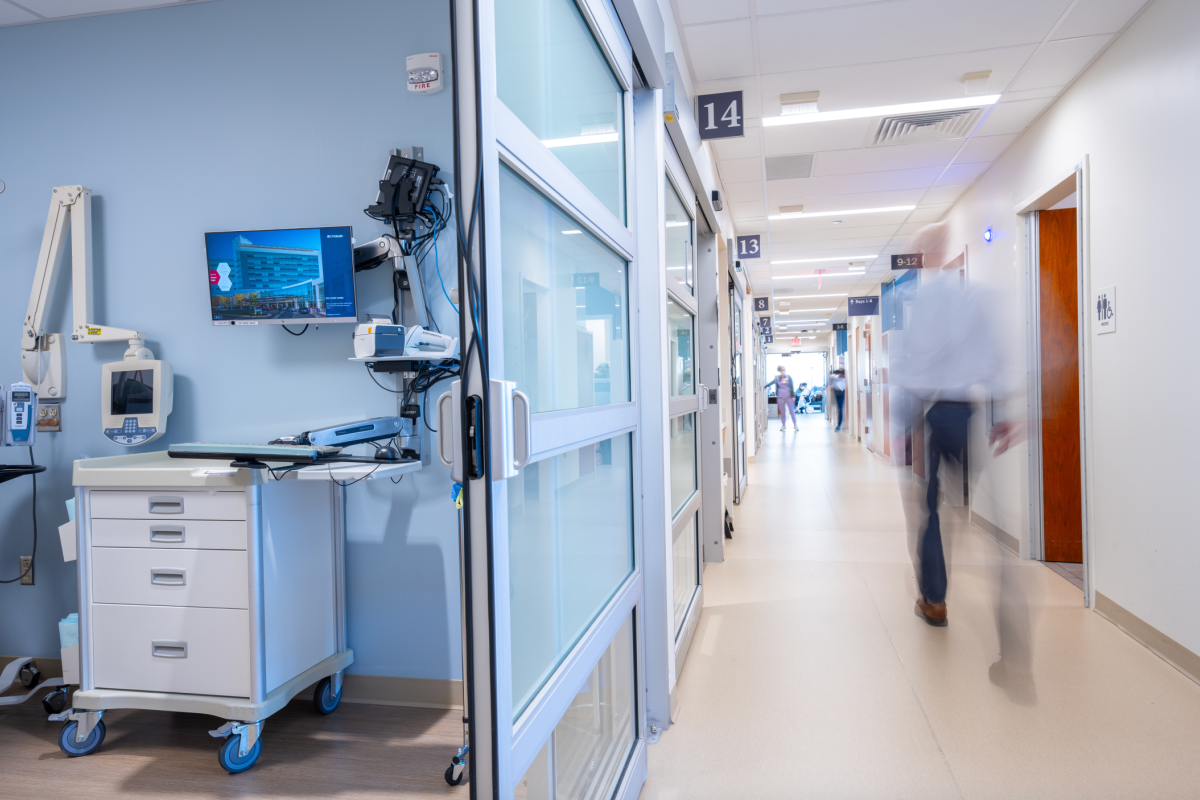Capacity for Care
It was over a decade ago, in April 2011, that UVA Health opened the Emily Couric Clinical Cancer Center (ECCCC) adjacent to University Medical Center. UVA alum Katie Couric had come to Charlottesville a few months earlier to dedicate the 150,000-square-foot outpatient cancer facility named for her sister, the late Virginia State Senator Emily Couric, who died from pancreatic cancer in 2001. With its patient-focused design and state-of-the-art technology, the ECCCC was a landmark achievement for UVA Health, the Commonwealth of Virginia, and the visionary UVA Cancer Center leaders, providers, and donors who made it happen. But a lot has happened since then, especially in cancer care at UVA. Tremendous growth in specialized services and facilities, innovative research, clinical trials, robust community outreach, and cancer prevention efforts culminated in UVA being designated a National Cancer Institute (NCI) Comprehensive Cancer Center in 2022. Under the supervision of Cancer Center director Tom Loughran Jr., MD, a professor of medicine and the F. Palmer Weber-Smithfield Foods Professor of Oncology Research, UVA was the first cancer center in Virginia to meet the NCI’s highest "comprehensive" standard and is currently among only 56 such centers nationally.
UVA Comprehensive Cancer Center’s growth aligns with continued efforts to address the insidious causes and consequences of cancer among a patient population that includes 87 contiguous counties in Virginia and West Virginia and approximately 3.2 million people. Compared to national averages, this population experiences a higher incidence, mortality rate, or both with respect to breast, colorectal, lung, prostate, and skin cancer. One of UVA Health’s primary strategies for navigating this challenge over the last decade has been expanding and enhancing its physical presence throughout the region and growing its team of cancer care providers in number, specialty, and level of expertise.
Philanthropy has been and will continue to be essential to that strategy. By making gifts to support UVA’s clinical cancer care and research, generous donors are a substantial reason why Newsweek recently ranked University Medical Center the No. 1 cancer hospital in Virginia and among the top 50 nationally. Here’s a closer look at how UVA Health has expanded to meet the needs of Virginia’s cancer patients and their families today and in the coming decades.
HOW FAR WE’VE COME
Someone with a keen sense of UVA Health’s cancer care progress before and after the ECCCC opened is Michael E. Williams, MD, ScM, the School of Medicine’s Byrd S. Leavell Professor of Medicine and professor of pathology. Dr. Williams led Emily Couric’s cancer care team and has been on the front line of UVA Health’s clinical cancer services and research since completing his residency and fellowship training at UVA in 1986.
After two terms as chief of the Division of Hematology and Oncology, where he played a crucial role in growing the division through physician hires and expansion of clinical research, Dr. Williams became the Comprehensive Cancer Center’s associate director for clinical affairs and UVA Health’s oncology service line lead in 2018. In that position, he oversaw growth in the depth and breadth of UVA’s clinical cancer care.
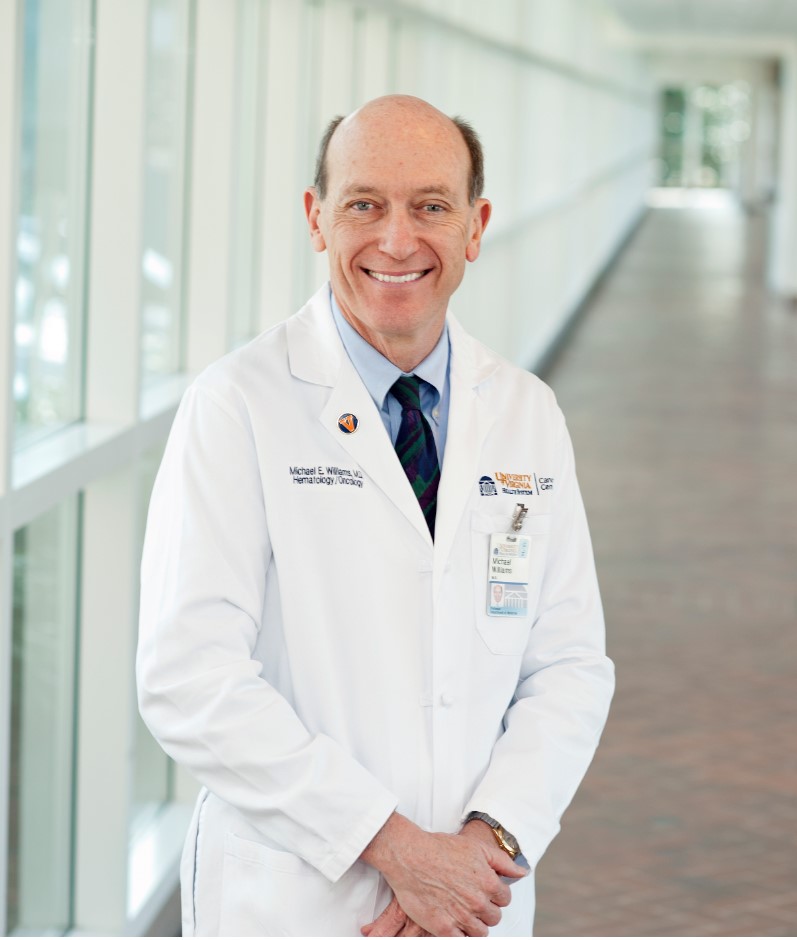
“The opening of the Emily Couric facility, a single site where patients receive comprehensive care and see experts in their type of cancer, was a major step forward for UVA and certainly for patients across Virginia,” said Dr. Williams. At the time, however, he said the institution was still challenged by a lack of clinician-investigators and recognized the need to bring in more experts and specialists who could deliver the latest treatments to patients while continually advancing the field. Thanks to recruiting efforts, the Division of Hematology and Oncology alone has expanded from 12 physicians at the opening of the ECCCC to over 45 providers across all UVA Health cancer facilities. In addition, an increase in disease-specific surgical oncology specialists and the onboarding of radiation therapists with the most sophisticated current treatment modalities have created robust multidisciplinary teams to serve each patient’s needs.
For example, a breast cancer patient may need surgery, chemotherapy, radiation therapy, or some combination. At UVA, the relevant experts collectively review the biopsy findings, molecular diagnostics, and imaging to develop the best plan for each patient. And there are many more patients to accommodate—approximately 10% more year over year since 2011. At the ECCCC, these patients receive advanced diagnostic testing and imaging, chemotherapy and other infusions, radiation treatments, and pre- and post-operation care.
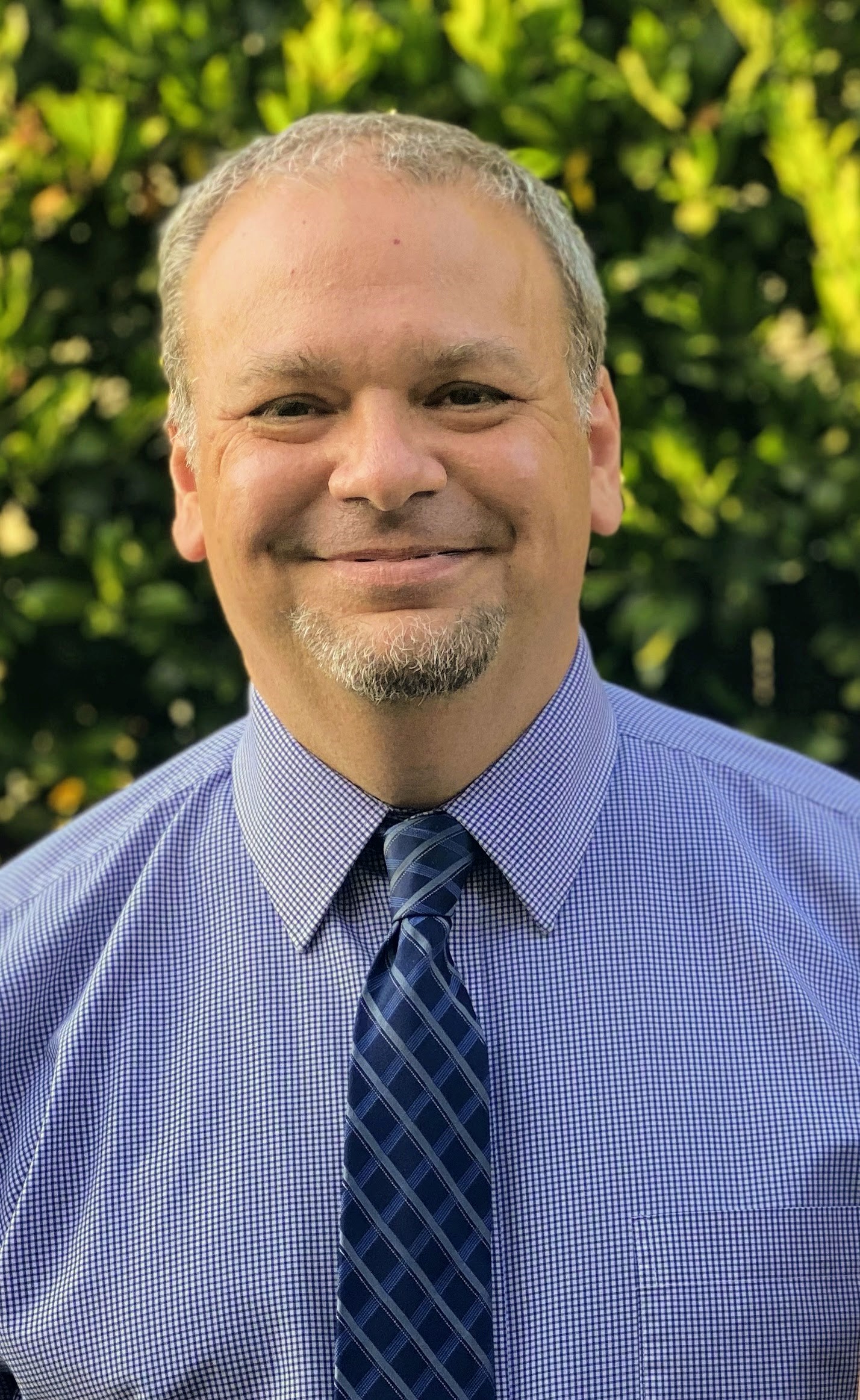
They also have access to genetic counselors, social workers, nutritionists, rehabilitation specialists, and palliative care experts during their cancer care journeys. “These patient-support services are unique to academic medical centers,” said Blake Herring, MSN, administrator of the oncology service line at UVA Health.
Renovations to the ECCCC’s second and fourth floors over the last four years have significantly expanded not only the number of patients who can be treated but also the complexity of cases. For example, the building can accommodate more clinical trial participants, who require longer and more extensive monitoring while they undergo investigational treatments. In addition, the ECCCC is now home to a dedicated cellular therapy clinic for outpatient stem cell transplants and chimeric antigen receptor (CAR) T-cell therapy (an advanced immunotherapy for certain blood cancers). “These are complex therapies that typically require a 7- to 14-day hospital stay,” said Herring. “Being able to offer them on an outpatient basis substantially improves patients’ convenience and comfort and frees up hospital beds for other critical care needs.” Another recently added feature bestowing similar benefits is the Oncology Urgent Care Clinic, where cancer patients can get same-day medical care and avoid the hospital emergency room.
In addition to the ECCCC, which Dr. Williams calls “the mother ship,” UVA Health now has cancer clinics and specialty facilities across Charlottesville, including a best-in-class Breast Care Center and the Moser Radiation Therapy Center. Moreover, patients in other parts of central and northern Virginia now have access to UVA Health cancer care in their communities.
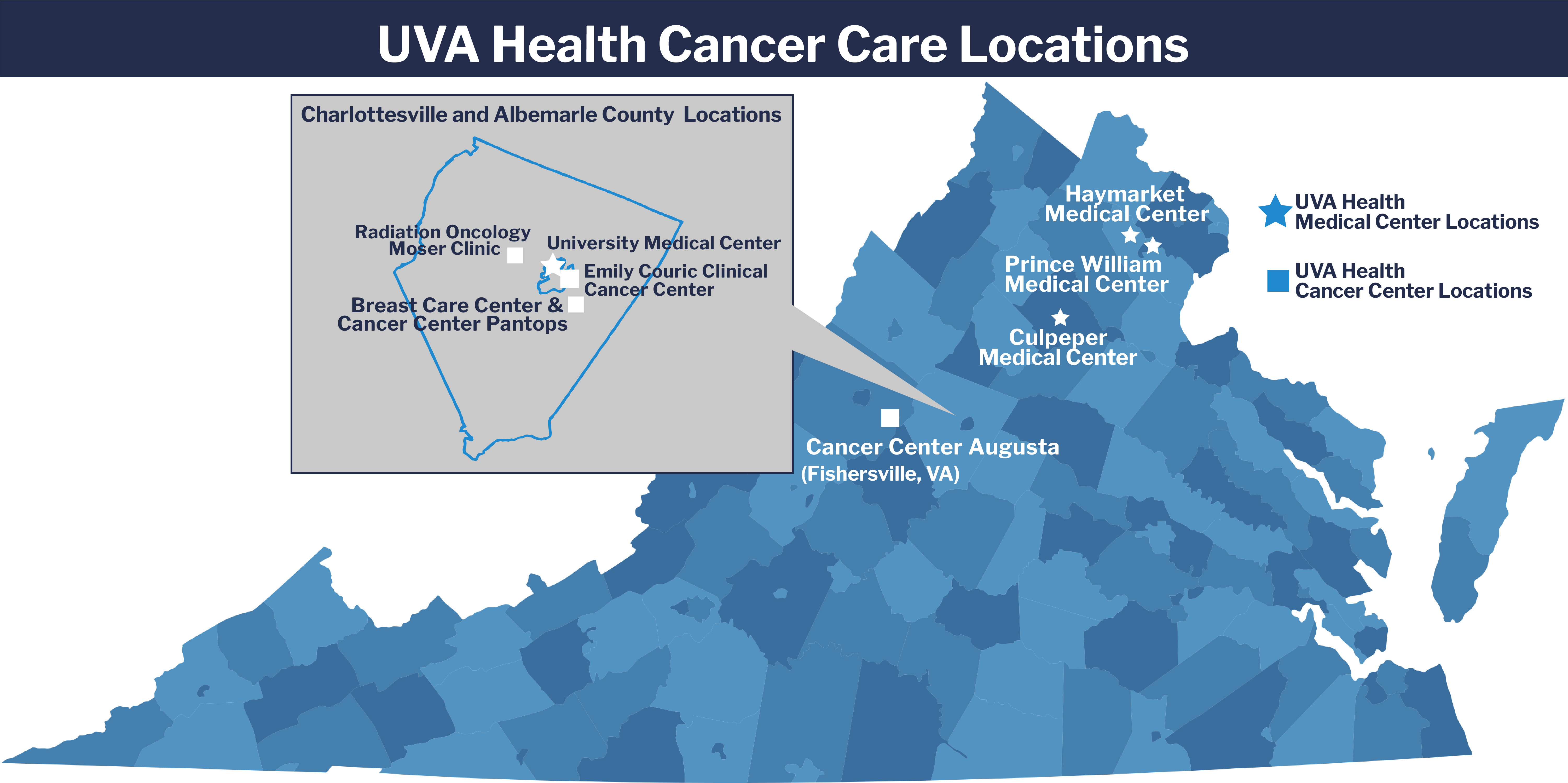
According to Herring, expanding UVA Health’s cancer care presence throughout Virginia is a priority, which isn’t surprising considering approximately 50% of UVA’s cancer patients live 50 miles or more from Charlottesville. Herring said close coordination and consultation between providers in community clinics and physician-scientists on the leading edge of cancer care and research in Charlottesville ensure patients benefit from UVA’s world-class expertise, wherever their location. “We want patients to be treated where they live,” said Herring. “We want standardization of care so patients get the same high-quality experience no matter where they are.”
UVA Health also recently partnered with Riverside Health System in Hampton Roads to develop local access to novel therapies being tested in clinical trials at UVA. For patients who’ve exhausted other treatment options, having access to these therapies close to home may be their best hope. UVA is also collaborating with community health centers in central, southside, and Southwest Virginia to expand cancer screening, prevention, and awareness programs for adults and children, especially in historically underserved areas.
Private donors support this growth in clinical care and support services through start-up funds for new programs and staff, endowments for faculty and their research programs, and contributions to the discretionary UVA Comprehensive Cancer Center Director’s Fund. That fund gives director Dr. Loughran the resources and flexibility to recruit and empower physician-scientists and researchers at the top of their fields—people focused on better understanding, treating, and ultimately curing all types of cancers.
“Philanthropy is a linchpin of everything we do,” said Dr. Williams. “There are a lot of gaps in the funding from the National Cancer Institute and other grantors. Support from donors gives clinician-investigators and basic cancer research scientists the time and resources to explore new treatments while caring for current and future patients who benefit from their discoveries.”
And many more patients are benefiting from access to novel treatment approaches at UVA. With increased faculty and support, UVA’s cancer-related clinical trials have gone from a handful of narrowly focused studies in 2011 to over 100 active trials covering numerous diseases today.
“The progress in cancer care over the last decade has been nothing short of dramatic,” said Dr. Williams. Cancer immunotherapies and precision medicines, many of them developed and tested at UVA, have greatly improved patient outcomes. “As a Comprehensive Cancer Center, we now have the expertise and sophistication to discover new insights about the biologic drivers of cancer subtypes, develop and test new treatments based on those discoveries, and bring them to our patients,” Dr. Williams said.
LOOKING AHEAD
Earlier this year, Dr. Williams stepped down from directing the Cancer Center’s clinical affairs and oncology services to focus on his teaching and groundbreaking research on mantle cell lymphoma, for which he received the Lymphoma Research Foundation’s inaugural 2021 Mantle Cell Lymphoma Leadership Award. After a national search, Leigh Cantrell, MD, MSPH, an expert in gynecologic malignancies and robotic surgery, was chosen as Dr. Williams’s successor.
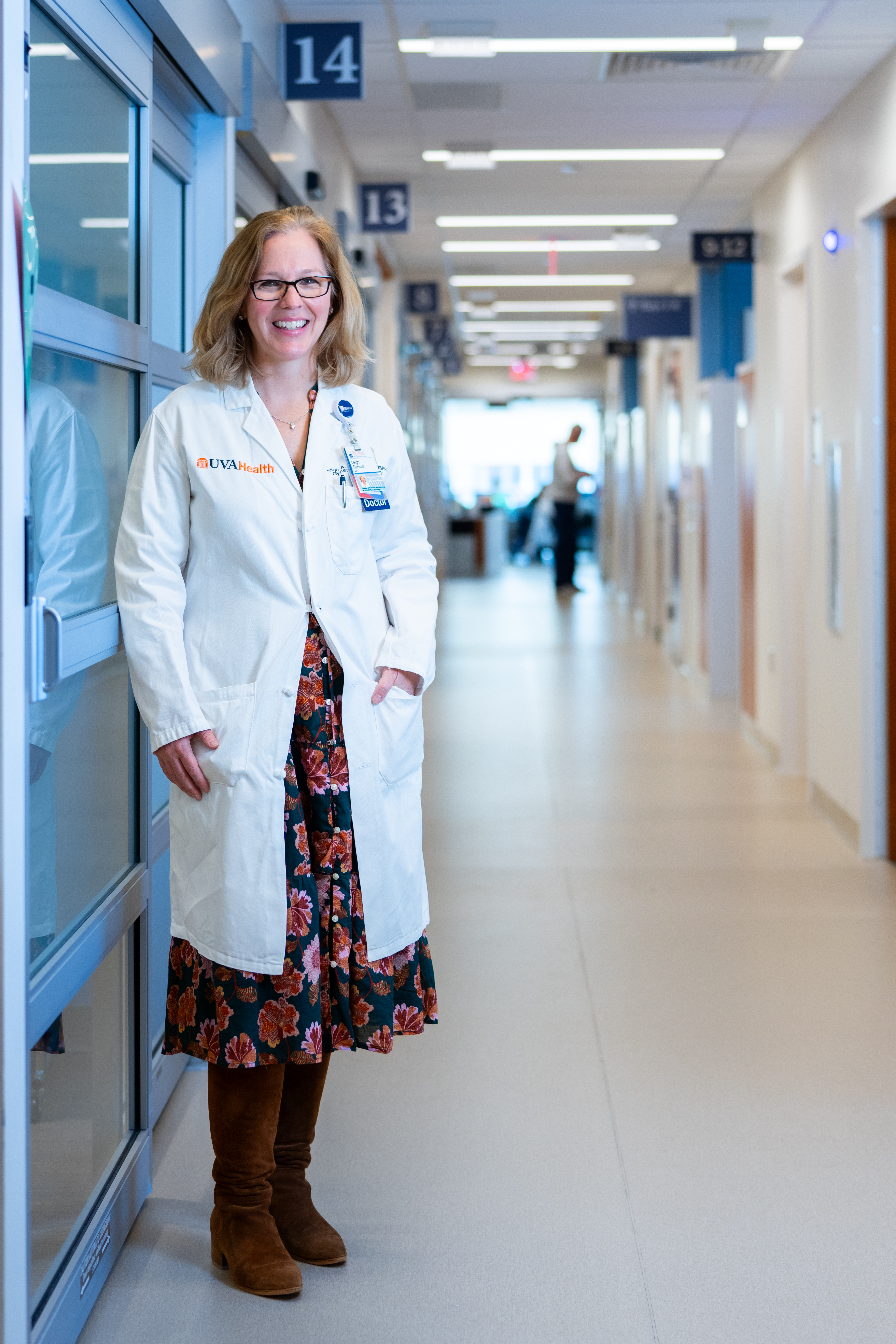
Since joining UVA Health in 2010, Dr. Cantrell has held many leadership roles at UVA School of Medicine and UVA Health, including medical director of the ECCCC’s ambulatory clinic since 2018 and chair of the University Medical Center’s Robotics Users Group from 2011 to 2023.
Dr. Cantrell has inherited a growing enterprise, with additional clinical expansion already underway. For example, the University of Virginia Board of Visitors recently approved building out a new floor in the University Medical Center’s South Tower, enabling the consolidation and expansion of necessary inpatient cancer care for the most high-risk and complex treatments. In addition, UVA Cancer Center Pantops is scheduled to open a new floor of exam rooms, 40 additional infusion chairs, and a pharmacy in early January 2025, and UVA Cancer Center Augusta in Fishersville is undergoing renovations that will nearly double the patient capacity and enhance services in the Shenandoah Valley. UVA Health is also hiring more medical oncologists and subspecialty cancer surgeons in its community clinics and pursuing additional clinical opportunities and partnerships across the commonwealth. According to Herring, two significant U.S. cancer trends driving this expansion are (1) rising rates of cancer diagnoses at younger ages and (2) aging cancer patients. Regarding the latter, he said, “We are getting so good at treating cancer that we’re seeing patients successfully treated for, say, breast cancer in their 60s and 70s, coming back 10 years later with a completely unrelated primary cancer diagnosis like lymphoma.”
“Ensuring UVA Comprehensive Cancer Center has the capacity and expertise to combat the burden of cancer in Virginia and beyond is imperative,” said Dr. Cantrell. “I am honored to be in this new role focused on clinical innovation, service line growth, and championing the highest quality patient care to make UVA Health the best place to provide and receive cancer care in Virginia,” she said.
To learn how you can support UVA Comprehensive Cancer Center's mission, please contact Corley Raileanu, Executive Director of Development, Cancer Programs, at corley@virginia.edu or 770.851.1904 or call 800.297.0102.

